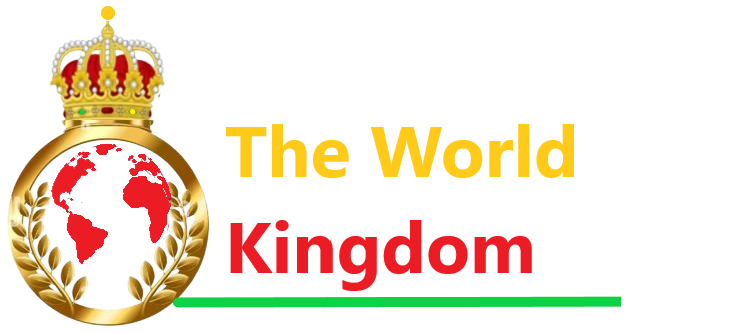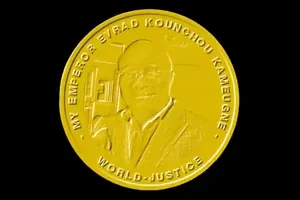Global Financial, Banking and Economy Initiatives
The World Kingdom is committed to improving, investing in and developing global financial and banking systems and improving the economies of all countries, in collaboration with all heads of state, heads of government, ministries and departments of finance, treasury and the economy, stock market exchange agencies, central banks, banks, Insurance, Bailiff agencies, credit agencies, debt collection agencies, financial and monetary policy bodies and postal addressing systems of all countries. These include:
- Organizing global dialogue forums on financial, banking and economic issues, with tripartite participants, to examine the impact of trade, finance, banking and economic diversification on decent work and business competitiveness in all sectors.
- Encouraging governments to use fiscal policy (taxation and spending), monetary policy (interest rates and money supply) and structural reforms (regulation, investment and trade) to improve the country’s financial stability and promote sustainable economic growth.
- Strengthening and establishing an innovative global financial and monetary system to modernize the global financial system
- Establishing the World Kingdom Crown Stock Exchange and Market to promote fairness, transparency, and economic stability globally, and by guaranteeing its independence from political manipulation and conflicts of interest, and protecting market integrity, which directly benefits investors, businesses, and the economy as a whole.
- Establishing the World Kingdom Crown Bank to offer loans, credits and grants for projects in areas such as World Kingdom Tax-back Loans, education, water resource, health, infrastructure, procurement and contracting, etc., as well as to provide expert advice, technical support, and knowledge to help countries develop and strengthen their resilience, reduce poverty, promote shared prosperity and achieve sustainable development.
- Implementing innovative World Kingdom tax-backed loans to mitigate the global crisis, improve economic growth, and reduce poverty of all countries. This innovative system enables governments, Stock Market trading and exchange bodies, central banks, and banks in all countries to obtain the necessary capital to guarantee loans and access the required funds immediately, based on their projected tax revenues. This system uses future tax revenues as collateral for loan projects and financial markets.
- Ensuring the tax system is reliable and transparent through a combination of clear legislation, advanced technology, independent oversight, and public access to information.
- Approving the loan request from the governments of the countries which will be forwarded for disbursement by the banks of the members of the Economic and Financial Council. Loan requests from the governments of the countries benefiting from the projects must be accompanied by justifications and the resources necessary to achieve the expected benefits. Objectives should often be SMART: Specific: they must target a precise area of improvement. Measurable: they must be quantifiable. Achievable: they must be realistic, given available resources and existing constraints. Relevant: they must be consistent with the organization’s other objectives to be relevant. Time-bound: they must have a deadline. “The principle of the essential elements of good project governance means that projects undertaken by an organisation must be able to demonstrate, in a business case, the clearly stated contribution, and that project governance is focused on the outcome rather than the activities.” Furthermore, governments must ensure that the international rule of law is implemented and enforced within in their countries before requesting a loan. Respect for and application of the rule of international law as set forth in this Charter will also be an integral part of the loan approval and World Kingdom tax-backed loans process.
- Providing an independent review of a project’s performance to ensure it meets expectations and Identifying risks early so that management can mitigate.
- Providing pragmatic advice to help coach project leaders. Inspecting and ensuring products/ equipment meet quality standards.
- Giving confidence to stakeholders that the project is delivering what is expected of it.
- Reporting in case of conflict of interest or if the person to whom responsibility is delegated is unable to assume responsibility.
- Controling borrowing and recover receivables through the country’s tax system or other resources or assets available as collateral.
- Investing or allocating capital or loans in certain industries and sectors, for examples: World Kingdom tax backed-loans, Tax system, Oil and Gas industries, Public Procurement, Public works, Water resources industries, Baby & Children’s Products Industries, Minerals & Metallurgy Industries, Aluminium, Steel, and Iron Industries, Software industries, Aerospace industries, Education & Employment sector, Healthcare sector, Cultural and Religious industries, Aviation, Rail, & Maritime Industries, Automotive manufacturing Industries, Manufacturing & Production Industries, Agriculture, Livestock & Fishing industries, Logistics, Distribution & Supply Chain, Defence industries, Firefighter Industries, Law Enforcement Industries, Ambulance Industries, Construction and Engineering industries, Wood and forestry industries, Real Estate, Transportation, Tourism, Securities Industries, Stocks, Banking system & logistics, Telecommunications industries, Postal system & logistics, Industries, Digitization & Artificial Intelligence, Social Networks and media, Research sector, Drone industry, Textiles, Clothing, Leather & Footwear industries, Cotton and soybeans, Food & Beverage Industries, Roads, Bridges, Train station, Port, Airport, Social Houses, Cities, Sport industries, Real Estate Industries. The aim is to help create beneficial social or environmental effects while generating financial gains. Capital investments Accelerate product development by acquiring new technology and resources. Expand geographically by opening new locations or adding sales resources.
- Ensuring the operation and implementation of an efficient financial platform and loan system within financial institutions. The objective is to offer Personal loans, Guaranteed personal loan, Credit cards, Mobile banking app, Payment processing equipment, Auto financing, Student loans, Mortgages, Home equity loans, business loans, Short-term loans, Payday loans, Gold loan, Life insurance policy loan, Term deposit loan, Mobile phone contract, Online purchase contract, Gift vouchers, Overdraft, Money cards, Payday loans, Home equity loan, Debt consolidation loans, Secure loan, guarantees, capital investments, insurance, ATM, software and more.
- Assisting all countries with procurement and contracting activities in the fields finance, bank and the economy, stock market exchange, Bailiff agencies, credit agencies, debt collection agencies, postal addressing systems, infrastructure, technologies, hardware, software for transaction processing, customer relationship management, payment processing, ATM mobile banking applications, credit and investment platforms, insurance.
- Ensuring the establishment of an impartial financial body that resolves complaints between consumers and financial institutions, that provides a free, fair and informal alternative to the courts for resolving disputes relating to financial products and services, and that has the power to order companies to rectify their situation if they have treated a customer unfairly.
- Connecting investors and borrowers and facilitate transactions to help banks raise capital, manage risk, and offer specialized financial products.
- Providing expertise in areas such as investment banking, mergers and acquisitions, and financial restructuring and assistance with risk management frameworks, helping banks identify, assess, and mitigate various risks, such as credit risk, market risk, and operational risk.

- Ensuring the establishment in all countries of credit rating agencies, debt collection agencies, a national system for reporting online fraud and cybercrime, bailiff agencies (or enforcement agents) and reliable postal systems. They are designed to prevent fraud. Fraud can significantly worsen poverty by diverting essential funds from those who need it most, reducing access to essential services, increasing financial hardship and deepening the cycle of poverty. Credit report agencies provide an easily accessible database of personal information, including potential victims’ credit scores and details of existing credit lines, which can be used to identify targets and perpetrate identity theft by allowing them to easily access the information needed to apply for credit in someone else’s name. They help investors assess the risk of investing in debt securities, while borrowers benefit from improved access to capital and lower interest rates. Debt collection agency is a company appointed by a creditor, such as a bank, credit union, loan company, energy Utility Company, mobile phone company, and finance or insurance company, to collect unpaid debts. They are a last resort for creditors who have exhausted their own remedies; identifying and remove fraudulent accounts from the collection process. This helps focus resources on accounts that are more likely to be paid. Bailiffs (or enforcement agents) are authorised individuals by the court who visit your home to collect an unpaid debt, such as Council Tax or a court fine, on behalf of a creditor. They can “take control” of your goods, creating a list of items they may take and sell at auction to pay off the debt and any fees. You can stop bailiffs by paying the debt in full, or by making a controlled goods agreement for a repayment plan, but acting quickly is essential. A national fraud and cybercrime reporting online is a centralized organization where individuals can report cases of fraud or cybercrime they have been victims of, allowing law enforcement to collect and analyse this information to identify trends and investigate possible criminal activity. is a centralized point for individuals and businesses to report suspected or actual fraud and cybercrime incidents to the police. Reliable postal systems can prevent scams, phishing, financial ruin, reputational damage, loss of confidence in the system, legal repercussions and serious psychological distress, particularly when people are wrongly accused and prosecuted. They also facilitate postal identification and verify a person’s identity and the proper functioning and integrity of the financial and commercial market.
- Monitoring and Investigating complaints relating to the conduct of credit rating agencies, bailiffs (and enforcement agents), debt collection agencies and postal services.
- Providing specialized assistance and resources to protect systems, networks and data against cyber threats, including identifying vulnerabilities, implementing security measures and responding to incidents.
- Ensuring the implementation of financial and monetary independence and security for all countries, free from any undue political influence.
- Encouraging the expansion of trade and economic growth by supporting policies that promote financial stability and monetary cooperation.
- Facilitating or lifting restrictions that hinder a country’s development. This contributes significantly to economic growth and the general well-being of society.
- Conducting economic research and analysis to guide monetary policy decisions, ensure stability in times of economic turmoil, and analyse global macroeconomics, microeconomics and its global functioning.
- Focusing on aggregate economic indicators such as national income, unemployment, GDP, and inflation, as well as how these indicators are influenced by global policies and events. The behaviour of individual households, firms, and issues like demand, supply, and pricing in specific markets.
- Conducting economic surveillance of all countries, produces reports and analyses their economic performance and provides technical assistance to help them strengthen their economic policies and institutions.
- Providing policy advice and guidance to support member countries in addressing economic challenges.
- Promoting economic connectivity across the globe. Increase access to quality education, healthcare, and nutrition to boost productivity, innovation, and competitiveness.
- Advocating for fair wages and tips, and purchase from businesses that treat employees well to foster a better economy and Promoting policies that ensure all workers have fundamental rights, a living wage, and health and safety protection to foster a more equitable labor market.
- Providing more opportunities and achieving gender equality increases economic efficiency and broadens the talent pool for economic activities.
- Fostering an environment that supports diversification, innovation, and the upgrade of industries to boost productivity.
- Strengthening economies, improving resilience to global shocks and promoting inclusive growth by making trade more efficient and reducing costs.
- Establishing robust social safety nets and ensure economic security to foster well-being and tolerance within a society.
- Establishing a global job market platform offering employment opportunities where workers and employers interact across national borders, influenced by economic globalization, technology, and the movement of skilled talent.
- Participating in job postings, candidate screening, and interview scheduling and recruiting and placing engineers and professionals.
- Playing a pivotal role in addressing global employment challenges through various initiatives. Central to this mission is the belief that sustainable employment is integral to community development and economic growth.
- Promoting of entrepreneurship through comprehensive support programs.
- Providing entrepreneurs with access to resources such as financing, mentoring, job opportunities, recruitment, and business development assistance. Contributing to job creation and innovation within communities through infrastructure investments. Implementing policies that encourage job creation, employment, entrepreneurship, and social progress.
- Protecting the rights of individuals, animals, and the environment, and supporting victims of abuse and crime.
- The “Emperor of the World and Emperor of Justice” may order at any time a global audit and investigations of the Fund or poor governance of its establishments to clarify governance issues. The announced objective is to shed light on governance within its institutions. The overall audit and investigations could lead to structural reforms and new governance, to assure citizens around the world the proper use of public resources. The World Kingdom intends to strengthen public control, transparency and the effectiveness of its institutions












